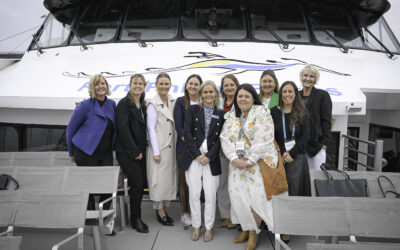Not up to date on the latest in employment law? No need to worry, because the team at Harwood Andrews have given us finer details of the Fair Work Act. Read on for the most important changes to note, and industrial relations issues for operators in the tourism industry.
What are the major and recent changes to the Fair Work Act?
1. Definition of ‘casual employee’
Firstly, it is important to note that last year, a definition of ‘casual employee’ was inserted into the Fair Work Act 2009 (Cth) (FW Act), which will also apply retrospectively, covering former, current and future employees. Moving forward, a casual employee is now defined as:
‘a person who is offered and accepts employment on the basis that the employer makes no firm advance commitment to continuing and indefinite work according to an agreed pattern of work.’
Employers should note that the following criteria can assist them in deciding which employees can be considered casuals:
- whether the employer can elect to offer work;
- the ability of the employee to accept or decline work;
- whether the employee will work only as required according to their employer’s needs;
- whether the employment is described as casual employment; and
- whether the employee is entitled to receive casual loadings or a specific rate of pay.
Importantly, employers should be mindful that, the fact that an employee has a regular pattern of hours does not automatically lead to a determination of casual employment.
Also, there is an obligation for employers to offer permanent employment to some casuals and a right for casuals to request permanent employment from their employer has also been introduced.
2. Sexual harassment
Following on from the #MeToo movement, the Australian Human Rights Commission delivered the Respect@Work: National Inquiry into Sexual Harassment in Australian Workplaces report (Respect@Work Report).
What did the report conclude?
In total, 55 recommendations were made. Essentially, the Respect@Work Report provides for specific amendments to the FWA Act. The key changes include:
- the definition of serious misconduct in the Fair Work Regulations 2009 (Cth) is to be amended to include an express reference to sexual harassment; and
- sexual harassment is to be expressly listed as a valid ground for dismissal for the purposes of an unfair dismissal application.
This is significant as sexual harassment at work is now an express ground for termination.
What other workplace and industrial relations issues should employers consider?
1. Bullying
What is bullying?
Under the FWA, bullying happens at work when:
- a person or group of people repeatedly behave unreasonably towards another worker or group of workers
- the behaviour creates a risk to health and safety.
Examples of bullying include:
- behaving aggressively towards others
- teasing or playing practical jokes
- pressuring someone to behave inappropriately
- excluding someone from work-related events
- unreasonable work demands.
What is not bullying?
Reasonable management action that’s carried out in a reasonable way is not considered bullying. This includes disciplinary or performance issues against the employee alleging bullying.
What are stop bullying orders?
The FWA provides that the Fair Work Commission (FWC) may make orders to stop bullying or sexual harassment. It is important to note that sexual harassment now can be a ground for a stop bullying order.
This gives the FWC the power to make anti-bullying orders when a worker has been bullied and there is a risk that they will continue to be bullied at work.
However, the FWC does not have the power to order any monetary compensation – the orders are there to get workers back working in a bullying-free environment as quickly as possible, while taking steps to remove future bullying risk.
2. Industrial Relations Landscape. Unions push for additional types of leave.
In recent enterprise bargaining with unions, we have seen an increase in claims by unions wanting to include special types of leave within an enterprise agreement, often centred around the COVID-19 pandemic. One example is infectious disease leave which would provide employees with an extra amount of paid leave to use in case of illness or isolation requirements stemming from a pandemic, without deducting personal leave balances.
This can be seen as beneficial for workplaces as it further encourages employees to stay home when symptomatic and preserve personal leave where an employee merely must isolate. However, it can also be argued that working from home arrangements already ensure work can be maintained in isolation or caregiving, with personal leave then being used if an employee is too sick to work, regardless of the illness type. Numerous employers have already agreed to infectious disease leave.
However, there has also been a pushback based on significant operational and fiscal challenges. This is now a major enterprise bargaining issue so it will be interesting to see how this develops in workplaces over the next few years.
This article was written by Jim Babalis, Special Counsel at Harwood Andrews and current at time of publishing. Please make sure you stay up-to-date with employment law changes.
Harwood Andrews is an Industry Partner of Tourism Greater Geelong and The Bellarine. To see more of what Harwood Andrews does, to get in touch with the team or to find out more about employment law for your business visit harwoodandrews.com.au.



